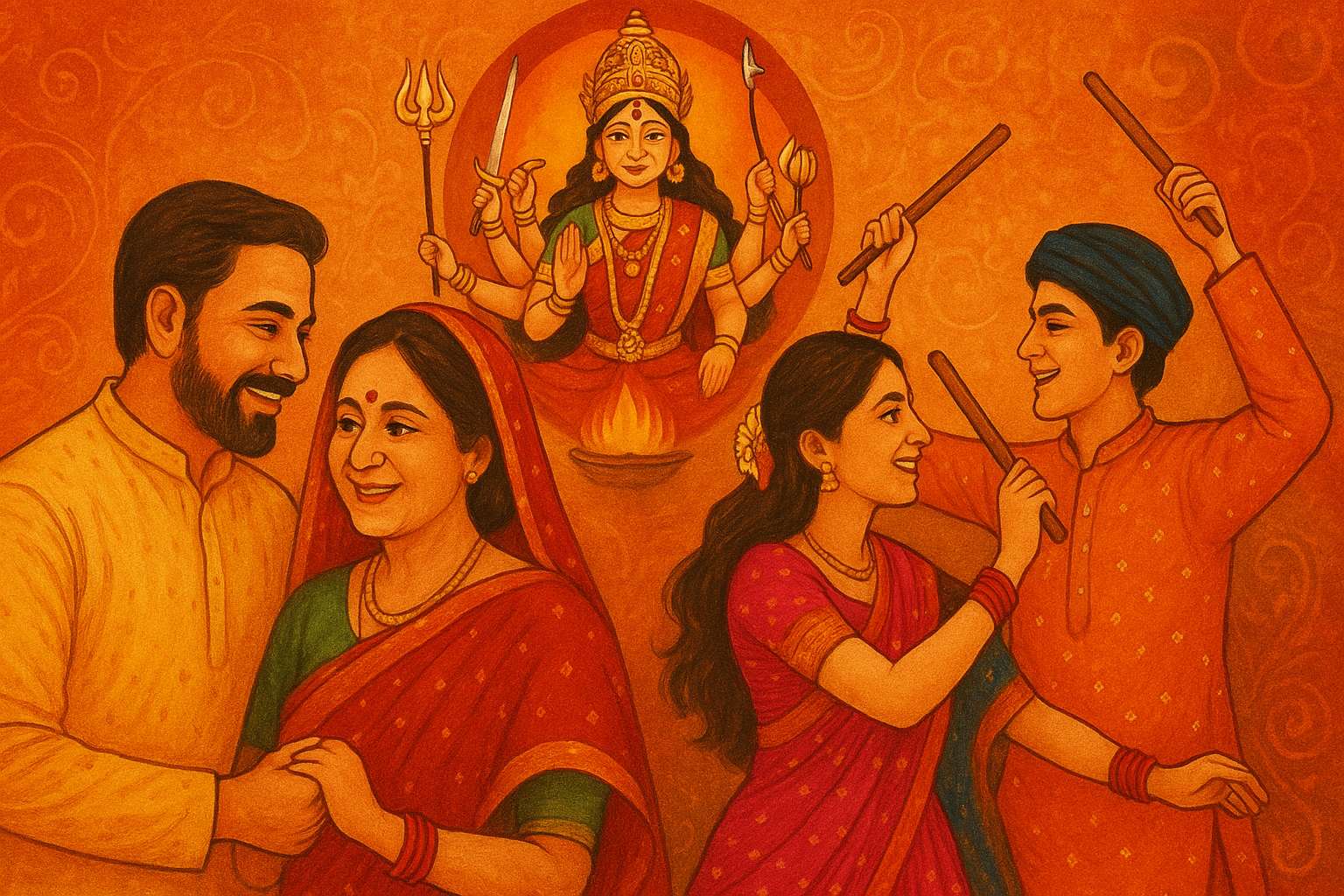
Navratri is one of the most vibrant and widely celebrated Hindu festivals, dedicated to Goddess Durga. While it is primarily a religious event, its significance goes far beyond worship. Navratri is a time when families come together, relationships are strengthened, and love and trust are reaffirmed. From shared rituals and festive meals to the joyous Garba and Dandiya nights, this festival fosters deep emotional connections. In this article, we’ll explore how Navratri enhances family bonds, nurtures relationships, and promotes values like love and trust.
Navratri: More Than a Religious Festival
Navratri is celebrated for nine nights, symbolizing the victory of good over evil. However, it is also a period of unity, reflection, and togetherness. The festival teaches essential values that extend beyond spirituality, influencing how people interact with their loved ones. The emphasis on devotion, patience, and faith resonates deeply within families and social circles, reinforcing the foundation of strong relationships.
Family Bonding During Navratri
One of the most cherished aspects of Navratri is the way it strengthens family ties.
- Puja and Aarti: Families come together to perform daily prayers and aarti, reinforcing a sense of unity and devotion.
- Festive Meals: The tradition of fasting and then breaking the fast with special dishes encourages togetherness. Preparing and sharing meals fosters warmth and connection.
- Cultural Activities: Many families dress in traditional attire and participate in community Garba and Dandiya nights, making joyful memories together.
The rituals and celebrations create a special atmosphere where families reconnect, regardless of their busy schedules.
Strengthening Relationships Through Social Celebrations
Navratri is a social festival that brings people closer, whether through religious events or cultural gatherings.
- Community Gatherings: Celebrations often involve extended families, neighbors, and friends, strengthening social bonds.
- Inviting Guests: Many families open their homes for festive get-togethers, promoting hospitality and warmth.
- Rekindling Friendships: The festival provides an opportunity to reconnect with old friends, reinforcing emotional ties.
These interactions build trust and affection, creating lasting relationships that extend beyond Navratri.
Love and Devotion: A Time to Celebrate Togetherness
Navratri is also a festival of love, expressed in various forms:
- Couples observing fasts together as a symbol of mutual respect and devotion.
- Siblings participating in rituals, strengthening their bond through shared traditions.
- Friends coming together for Garba and Dandiya, celebrating joy and companionship.
The festival’s emphasis on devotion and dedication extends to relationships, fostering deeper emotional connections.
Trust and Faith: The Core Values of Navratri
Navratri is a time of unwavering faith in the divine, and this faith extends to personal relationships. Just as devotees trust Goddess Durga to guide them, the festival reminds us to cultivate trust in our relationships.
- Forgiveness and renewal: Many people take this time to resolve conflicts and rebuild trust.
- Patience and understanding: The discipline of fasting and prayer teaches patience, a crucial element in any relationship.
- Commitment and loyalty: The devotion displayed during Navratri serves as a reminder of the importance of staying committed to our loved ones.
By embracing these values, individuals can strengthen their relationships long after the festival ends.
Conclusion: Carrying the Spirit of Navratri Forward
Navratri is more than just a festival of devotion—it is a time to celebrate love, family, and trust. The traditions and rituals bring people closer, reinforcing the importance of unity, togetherness, and faith. As the festival concludes, the spirit of Navratri should continue to inspire us to nurture our relationships with love and trust.
How do you celebrate Navratri with your loved ones? Share your experiences in the comments!



